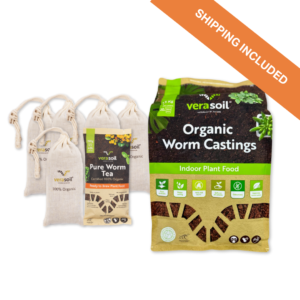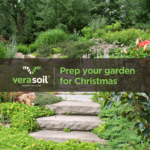

Gary Dal Broi
Agronomist & Production Innovation /
Managing Director
How To Plant Your Own Veggie Garden


Gary Dal Broi
Agronomist & Production Innovation /
Managing Director
How To Plant Your Own Veggie Garden
Whether you’re looking for an outside activity to keep the kids busy at home, or you just want to start something new and exciting, planting your own veggie garden is a great way to grow organic food that is healthier for your body.
And…it doesn’t matter if you have just a balcony, or a big backyard, anyone can plant their own veggie garden – big or small! If you want to start your own veggie garden, but you don’t know where to begin, here’s a quick guide from us on the most important things to consider:
1. Location, location, location!
Think about convenience, the sun, drainage and any toxins that may affect the garden. Your garden needs to be placed where it is easy to water, weed and harvest, but where it will also get at least 6 hours of sunlight every day.
Backyard veggie gardens do have a little more flexibility when it comes to planting, as you can either plant in plots and rows, or as a raised garden bed, however balcony veggie gardens are still possible. For people who want to grow vegetables on their balcony, you can grow your garden in containers, however, you need to ensure that there is a great drainage system so that veggies do not become waterlogged.

2. Plan your layout
Be careful with this, as each vegetable needs a certain amount of space to thrive. Think about the produce throughout seasons and how tall a plant will grow, as well as what plants are compatible with one another.
But most importantly, what veggies do you want to grow and consume? Prioritise these first, and modify as needed.
3. Prepare the soil
Before any planting begins, it is a good idea to make sure your soil is the best it can be. A great way to do this is to add compost or worm castings to your soil, as they are both great ways to organically fix deficiencies that are important for veggies to thrive. Our 15kg bag is the PERFECT addition here, as it will naturally enhance the quality and growth of your plants, it is completely odourless (great for balcony gardens), and it will allow your plants to retain their moisture.
4. Plant your veggies
Now it’s time to plant! Depending on where you live, you will be subjected to a growing climate that will vary anywhere from cool to tropical. This may affect which plants you decide to grow, and what time of year you plant vegetables.
Now, there are two ways that you can plant vegetables – by directly sowing seeds into the soil, or by transplanting seedlings. Our favourite way is to transplant seedlings (depending on the vegetable), as the developed roots can take up a lot more of the nutrients provided by Verasoil.
Depending on your gardening ability, there are vegetables that you may choose to plant over others, simply due to their ease of growth. We’ve developed a list of the easiest vegetables to grow, which include:
- Herbs – rosemary, mint, thyme, chives, and oregano
- Silverbeet
- Leafy greens – such as lettuce or spinach
- Zucchini
- Cherry tomatoes
- Radish/spring onions
All of these vegetables are suitable for balcony gardens as well.


5. Care for your Garden!
Once you’ve planted your garden, your job isn’t over yet. You have to care for your garden continuously, by watering, fertilising and weeding as necessary.
We recommend watering your plants early in the morning, and again in the afternoon, to avoid plants being burned from watering when the sun is at its hottest.
It would also be a good idea to fertilise your veggies regularly as well – every few weeks. You can utilise a liquid fertiliser for ease, looking for organic plant fertilisers that will promote both soil and plant health. You can use our worm castings to make liquid worm fertiliser, by diffusing the castings in water for 15 minutes, however, we will be releasing our own ‘worm tea’ in the coming months, so keep an eye out for that.
You should also care for your garden by weeding every week, as weeds prevent seedlings from reaching their maturity.
So, there’s your quick guide to planting your very own veggie garden at home. While we all want results for our efforts, it’s important to remember to have fun with it all. If you don’t produce vegetables the first time you’ve planted your garden, don’t be disheartened! It can take a few attempts to get all elements to work in complete harmony with one another.
Are you ready to begin your home-grown journey? Click here to find a Verasoil stocked Bunnings, and don’t forget to tag us in any posts on your social media!
Facebook: @verasoil
Instagram: @verasoil_australia






